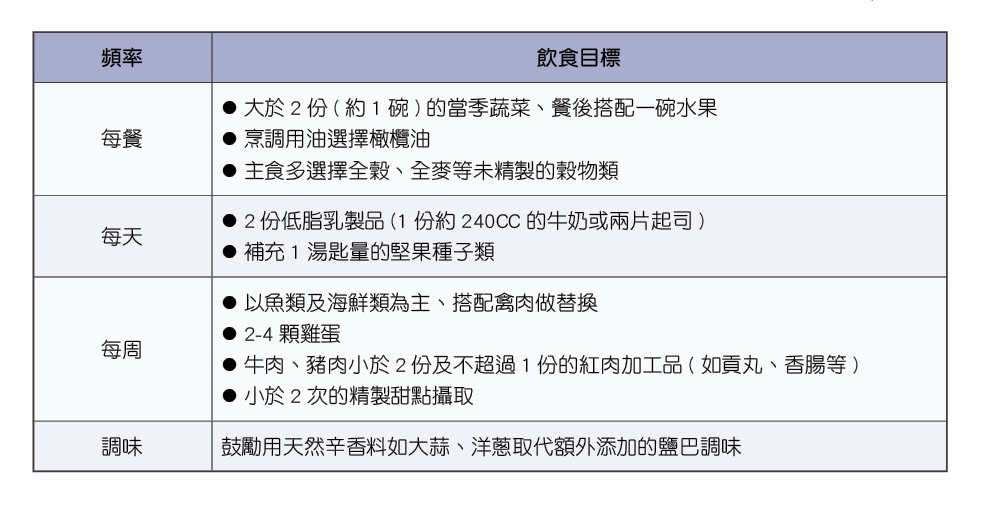Mediterranean diet - Lowering cholesterol, blood pressure, and blood sugar steadily
Update Date:2024/07/01,
Views:251
Concept and Definition
The traditional Mediterranean diet originates from civilizations around the Mediterranean Sea. Although there is no single definition, research since the 20th century generally describes it as rich in fruits, vegetables, whole grains, legumes, nuts, and seeds. A distinctive feature is the significant use of olive oil as a primary fat source, limited consumption of red meat, and moderate intake of fish, poultry, and dairy as sources of protein. Additionally, it allows for moderate consumption of wine (as illustrated in the diagram).
Current Research and Benefits
Research has confirmed numerous health benefits associated with the Mediterranean diet, including reduced incidence of cardiovascular diseases, as well as risk factors such as obesity, hypertension, metabolic syndrome, and dyslipidemia. This dietary pattern has also been shown to lower the risk of developing diabetes and improve blood sugar control in patients. Furthermore, it has been associated with reduced rates of age-related cognitive impairment and neurodegenerative diseases, particularly Alzheimer's disease.
In summary, the Mediterranean diet emphasizes diversity in food choices rather than focusing on any single food item. This approach ensures intake of a wide array of nutrients, providing comprehensive nutritional protection.
Implementation Methods
For those in Taiwan, in Asia, wondering how to adopt the Mediterranean diet without access to foreign environments, here's a table to guide everyone in trying the Mediterranean diet together.
| Frequency | How to Set Dietary Goals |
|
For each meal | - More than 2 servings (approximately 1 bowl) of seasonal vegetables, accompanied by a bowl of fruit after meals.
- Use olive oil for cooking.
- Choose whole grains, whole wheat, or other unrefined grains as the main staple.
|
|
Everyday | - 2 servings of low-fat dairy (1 serving is approximately 240ml of milk or two slices of cheese).
- Include 1 tablespoon of nuts or seeds for supplementation.
|
|
Weekly | - Emphasize fish and seafood, with poultry as an alternative.
- Limit red meat such as beef and pork to less than 2 servings, with processed red meat products (e.g., meatballs, sausages) not exceeding 1 serving.
- Consume refined desserts less than 2 times per intake.
|
| Seasoning | Encourage using natural spices such as garlic and onion instead of adding extra salt for seasoning. |
Mediterranean diet suggests moderate wine consumption as a characteristic feature, but it is not mandatory. It is recommended to consider personal circumstances when drinking alcohol. For those who choose to drink, it is advised not to exceed daily limits: 2 alcohol units for men and 1 alcohol unit for women.
1 alcohol unit = 15 grams of alcohol = 105 kilocalories = 360 ml of beer = 120 ml of wine (red or white) = 80 ml of Shaoxing wine = 40 ml of whiskey = 30 ml of sorghum liquor.
Not Suitable for Certain Groups
Since the Mediterranean diet emphasizes the consumption of large amounts of fruits and vegetables, whole grains, and dairy products, which are rich in potassium, calcium, magnesium, and phosphorus, it is important for individuals with chronic kidney disease or those undergoing dialysis to monitor their intake of these micronutrients. Consulting with a physician or a nutritionist is recommended for these individuals.
For those with issues related to blood pressure, cholesterol, or blood sugar levels who are unsure of where to begin their journey towards a healthier lifestyle, trying the Mediterranean diet could be a good start! In addition to dietary changes, developing a habit of 30 minutes of daily exercise is also crucial.


